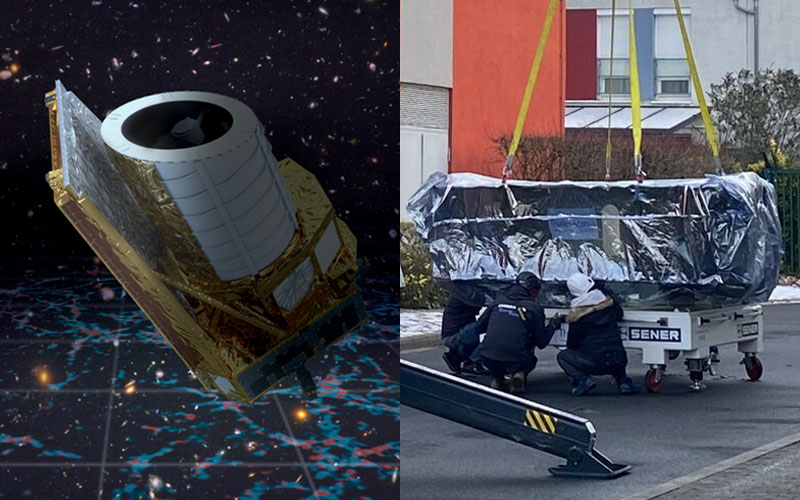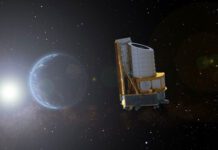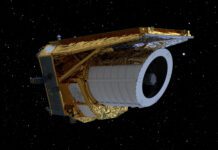
The avionics model of the European Space Agency’s Euclid space telescope has arrived at the agency’s European Space Operations Centre (ESOC) in Darmstadt, Germany.
Euclid was launched aboard a Falcon 9 in July 2023 and is currently stationed about 1.5 million kilometres away from Earth at Lagrange Point 2. The telescope was designed to explore how the universe expanded, revealing more about the role of gravity and the nature of dark energy and dark matter. During its six-year mission, the telescope will observe billions of galaxies out to 10 billion light-years across more than a third of the sky.
The Euclid avionics model was delivered to ESOC on 17 January from the Thales Alenia Space facility in Torino, Italy. The model represents an exact representation of the hardware and software aboard the telescope that enables it to be controlled from the ground, including propulsion, attitude control, communications, computers, and navigation. It will allow teams of engineers and operators tasked with overseeing the operation of Euclid at ESOC to test new procedures and software on the ground before they are executed on the spacecraft itself.
The telescope’s avionics model has already been pivotal to the Euclid mission, with it being used during a challenging commissioning phase. In an August 14 update, ESA revealed that the commissioning of the telescope’s fine guidance sensor (FGS) was taking longer than expected, citing an issue affecting the sensor’s reliability. Through August and September, teams from ESA, Thales Alenia Space, and Leonardo “went back to the drawing board and revised the way the FGS identified stars,” explained Euclid spacecraft operations manager Micha Schmidt.
Before a software patch to resolve the issue was uploaded to the telescope, it was the first tested on the avionics model. Finally, on 5 October, ESA announced the patch had been successful and that teams had finally been able to conclude the telescope’s commissioning phase.



